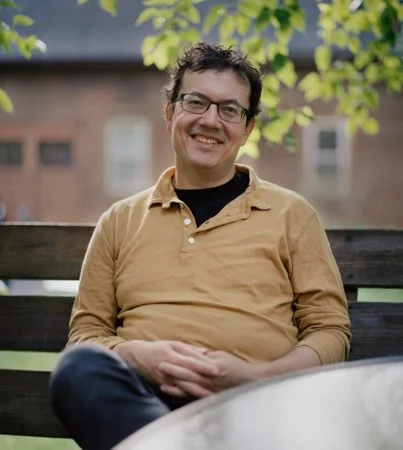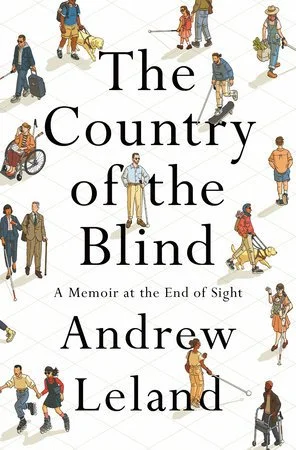Andrew Leland is the author of The Country of the Blind: A Memoir at the End of Sight (Penguin Press, 2023), a finalist for the Pulitzer Prize in Memoir/Autobiography. It was named a best book of the year by The New Yorker, The Washington Post, The Atlantic and others. His writing has appeared in The New York Times Magazine, The New Yorker, McSweeney’s Quarterly, and The San Francisco Chronicle, among other outlets. From 2013-2019, he hosted and produced The Organist, an arts and culture podcast, for KCRW; he has also produced pieces for Radiolab and 99 Percent Invisible.
He was asked in an interview how his thoughts have changed regarding the degrees of importance people assign to different senses: “Our brains are wonderfully multimodal in their apprehension of the world. What we might experience as a purely visual activity—looking for a cup of coffee on the table, for instance—actually contains a great deal of information beyond sight. We’re gathering tactile cues (fingers brushing the table as they move toward the hot cup), auditory signals (the clink of a fingernail as it connects with the ceramic mug), even olfactory indicators (the steam rising off the coffee). I’ve had to turn up these nonvisual channels as my vision has gradually turned down. Looking for a cup with my fingers might strike an onlooker as a fumbling way of going about things, but one quickly grows accustomed to it. It’s not a magical blind tactile adventure; I’m just finding the cup like I always have, albeit in a different style.”
Leland has been an editor at The Believer since 2003. He lives in western Massachusetts with his wife and son.



